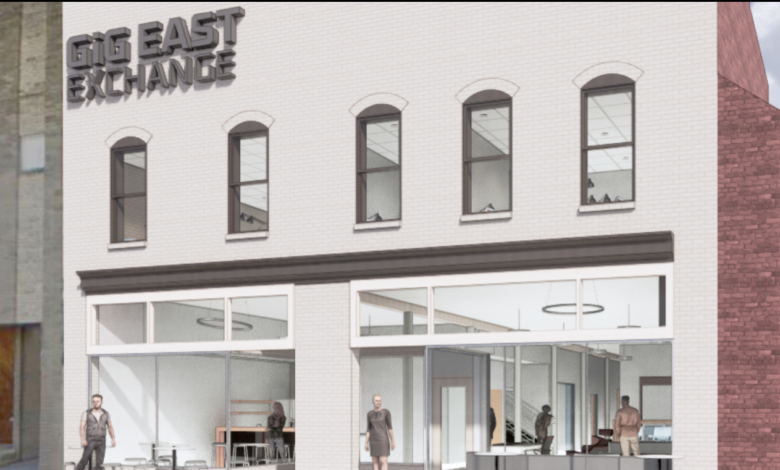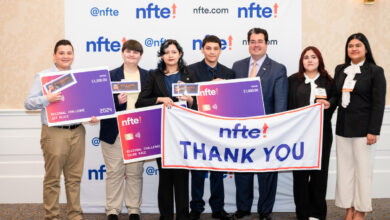Tom Snyder: Entrepreneurship is everwhere

When people think about startups, they often think of Silicon Valley and a few college dropouts starting a tech company in their garage. After all, that’s precisely the story of Steve Jobs and Steve Wozniak, who started Apple Computer in Jobs’ parents garage in 1976 after Jobs dropped out of Reed College and Wozniak from UC Boulder. Between 1972 and 1982 we saw the birth of Atari, Oracle and Sun Microsystems, all by founders in their 20s living in the Valley.
In other parts of the US, young college dropouts found paths to success with tech startups. Bill Gates founded Microsoft in Albuquerque after dropping out of Harvard after three semesters. Michael Dell (Dell, Dallas. UT Austin) and a few decades later Mark Zuckerberg (Facebook, Menlo Park, Harvard) are other famous examples of dropout success.
But the reality is that most startup companies are not started in San Francisco. The Silicon Valley Institute for Regional Studies reports that 749 new startup businesses were created in the region in 2023. That compares to 1.6 million new tech startups (out of 5.5 million total new businesses) formed across the US in the same year (Wall Street Journal). Silicon Valley accounts for only 0.05% of new US startups.
The age and education of a typical founder defies the deeply ingrained story of a college dropout. In fact, the US average for first-time startup founders is 42. Harvard Business Review studied high-growth, successful startups and found the average age to be 45.
It is easy to fall for the mystique of the Silicon Valley startup. I believe the reason that the story persists is that most media reporting on startups focuses on venture investing.
I’ll admit that I scratch my head each time I see a major news story about a company that was unable to grow through their own revenue and had to raise outside capital. Raising funds can be strategic — particularly if it enables a company to rapidly grow through merger and acquisition activities for example. And the positive media attention is a boon.
But a great deal of fundraising is simply keeping companies alive until they reach profitability, with the bonus of a huge positive spin from the media. I suppose the story of a company that quietly grew through sales and an occasional bank loan doesn’t have the headline appeal of a big-number fundraise. But the reality is that most startups never raise venture capital. Many founders prefer a slower-growth approach that maintains their own ownership and control.
But most bootstrapped startups don’t achieve unicorn status ($1B valuation) at the pace of a venture-backed media darling. For example SAS, a fully bootstrapped tech company in Cary founded the same year as Apple reached $1B in sales sometime in the mid-1990s. Exact sales data is not released by this private company, and so the media doesn’t have an easy headline story to write. Venture-backed companies like Pendo in Raleigh, achieved $1B status less than 10 years after their founding, perhaps in part due to the media attention that helped them to grow.
Silicon Valley, and the young, rebellious founder persona continues to dominate the startup narrative because of the venture capital in California. Depending on the source, it is estimated that 41-44% of all US venture capital is in Silicon Valley. As a result, we regularly see huge news stories about massively expensive investments in Silicon Valley. There is such a tiny supply of new startups (compared to national activity) that normal supply and demand economics tend to grossly drive up the price of the companies in that region, making the media stories even grander.
You see the same in other concentrated markets. The price of licensing and producing movies in Hollywood is much higher compared to other places, considering the huge supply of capital compared to a relatively smaller supply of studios. And more “unicorn” movies come from Hollywood as a result. But that doesn’t diminish the huge numbers of successful independent films.
A few famous tech founders were early to recognize that opportunities outside Silicon Valley greatly outweigh those in the Valley. Steve Case, the founder of AOL, started the Rise of the Rest in 2014, focused on investing in smaller and mid-market cities. Since 2012, more than 1,400 venture capital funds have been started outside New York, Boston and San Francisco.
Right here in the Triangle, we see a lot of positive startup activity. Scot Wingo, who has started and sold multiple successful tech companies tracks Triangle data. His Tweener List accounts for over 300 startup companies that are headquartered in the Triangle, each having at least $1M in annual revenue and/or at least 10 employees. To have achieved “Tweener” status is a solid measure of business success. From our observations at RIoT, the pipeline of smaller companies, “on their way” is easily 5x the Tweeners.
Scot started the Triangle Tweener Fund to provide early stage funding to a significant number of local startups. He’s joined by other relatively new investment funds like Primordial Capital and Jurassic Capital, two funds run by Joe Colopy. More established funds in the region, like Bull City Ventures and Cofounders Capital are on to their 2nd and 3rd funds. Even smaller towns like Danville, VA, an hour north of Durham, have multiple VC funds operating out of The Launch Place.
I believe the story will continue to change, to more accurately reflect the actual distribution of startup success. Consider: there are 88 cities in the US with >250,000 population. If we were to assume that tech startups have a far greater probability of success if they start in a high-population area, then each of these cities would capture 18,182 new startup ventures annually (of the 1.6 million detailed above). We already know that the greater Silicon Valley region only started 749 in 2023. San Francisco accounted for only 497 of those, falling more than 17,400 short of this hypothetical reality.
The point is this – new business activity is happening everywhere. And the investment dollars are starting to spread out to find them. The vast majority of new companies do not follow the path of venture capital investment, so don’t get the same media attention. But all of these tech startup companies are vital to our economy and we collectively should all support their growth.
If you’re interested in further educating yourself about things happening in NC, there are two events I’ll encourage you to attend. On Tuesday, June 4, is the 3rd Annual Grep-a-palooza event at the Durham Convention Center. You can register now for $199-$299, or pay an additional $50 at the door. This showcases the incredible activity in Durham and the greater Triangle, bringing together startup veterans and brand new entrepreneurs.
A week later, I would highly recommend driving an hour east of Raleigh to attend the Gig East Summit in Wilson, NC. This is an annual, full-day event celebrating entrepreneurship, arts, science and technology that is happening in Eastern NC. The Gig East Summit is free to attend, and I think you’ll be pleasantly surprised to learn how much tech startup activity is happening in the small towns of Eastern NC. The keynote will be given by the founder of Mapquest, a company started in Lancaster, Pa. — not exactly a tech hub.
Both events will have startup pitch competitions, networking happy hours and are friendly communities, welcoming to first timers wanting to support and join the entrepreneurial community.
North Carolina authentically has as much startup activity and talent as California and Silicon Valley. Entrepreneurship is everywhere. We just need to start telling that story.



